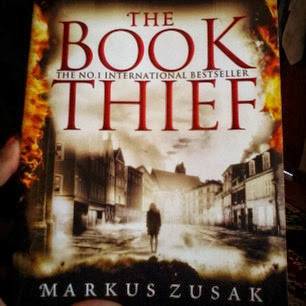Kafka
on the Shore by Haruki Murakami is the second book I’ve read by a Japanese
writer. The first book I read was The remains of the Day by Kazuo Ishiguro in my sophomore days in college. Perhaps
I was a little too naive to understand the depth of the book which was awarded
the prestigious Man Booker Prize for Fiction (1989) that I didn’t quite enjoy
the book.
With
the same skepticism in mind, I grabbed a copy from the local book store and set out
to read Kafka on the Shore.
My oh my, I was totally blown off.
It was a complete page-turner; I could not
simply put it down and I have been consistently late to work for the last few
days for staying up late at night just to put it down. I struggled though.
Kafka on
the Shore (translated from the Japanese by Philip Gabriel) is
mesmerizing, ethereal and surreal that sweeps you out of your way and leaves
you puzzled.
On his fifteenth birthday, Kafka Tamura (we never know his real
name) runs away from his affluent motherless home in Tokyo and lives in a
corner of a library in a far-off small town.
Fifteen
year old Kafka is laid under the omen of his father, a renowned Tokyo sculptor
who tells Kafka that he is destined to murder his father and sleep with his
mother and sister. This oedipal prophesy is heavy for Kafka and the story
centers around it for him.
Paralleling
the story of Kafka is the story of Nakata, an old man who has the ability to
talk to cats. As a child in the fourth grade, while on a mushroom-gathering
outing with his class he fell into a coma after an unexplained flash of silver in
the sky. When he woke up several weeks later in a military hospital, he
had lost his entire memory and with it, the ability to read and write. He lives
on the government subsidy and earns some commission from finding lost cats in the neighborhood.
It’s the
story of fish and leeches falling from the sky and a shadowy pimp dressed as
Colonel Sanders and an enlightening sex worker. It features un-aged WW I soldiers living in a forest, a
transgender hemophiliac, a woman living in the past with an ability to
travel through space and time and the unenlightened Hoshino, a truck driver with
a ponytail, a pierced ear, and a Chunichi Dragons baseball team cap and how
their lives cross each other's path.
I’m not a
cat person. However, Nakata’s ability to converse with cat made me give a
second thought and it is endearingly written in the book. I developed a love for the old man, Nakata’s character in the book for his innocence, truthfulness, honesty and for
his inability to read and write. Of course his ability to converse with cat is
exceptional. He was a perfect vehicle to
execute the plots which perhaps could have been incomplete without him.
There are
many questions unanswered in the book.
The theory of T.S Eliot’s Hollow Man,
Oedipus complex and a lot of symbolic metaphors are sometimes ethereal and
makes one ponder until one lets things pass by and sometimes make it utterly
empty.
It filled my head, it consumed me but I loved it. Murakami is reported
to have said that his novels are meant to be read again and again, and that it
is up to the reader to devise their own thoughts and conclusions. Perhaps I
need to read it again to formulate my own thoughts and venture beyond what I
need to.
A brilliant
book! I enjoyed it completely. And definitely its one of those 1001 books that you
must read before you die. Thus, this quote from the book completely sums me up:
“The book didn't come to any conclusion, and nobody wants to read a
book that doesn't have one. For me, though, having no conclusion seemed
perfectly fine.”
Haruki
Murakami
















